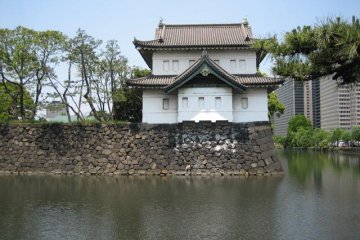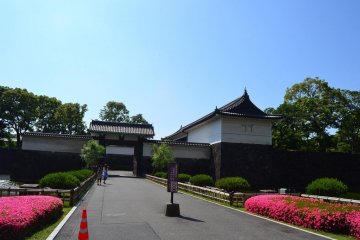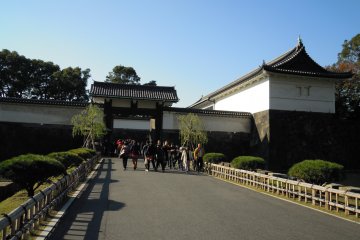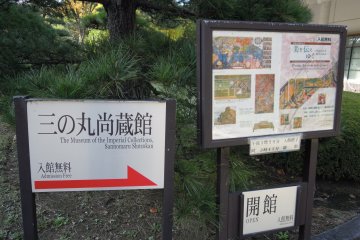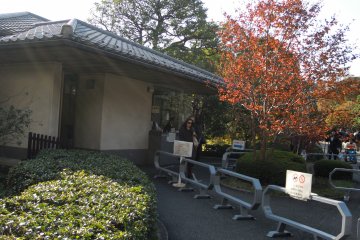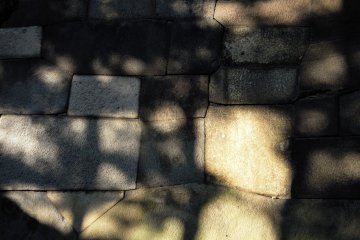I believe the Imperial Palace is one of the most famous places in Japan. Yet, I wonder how many people know that the Imperial Palace includes an impressive museum with no admission fee. The Museum of Imperial Collections, “Sannomaru Shozokan” (三の丸尚三館), was established when the Imperial family donated a part of their private collection to the Japanese government when the Heisei Eera began in 1989.
I like to visit this museum on the occasion of special exhibitions as well as on fine spring or autumn days because I can enjoy the 15-minute-walk from Tokyo Station. I also enjoy looking around the garden, “Kokyo-Higashigoyen” (皇居東御苑)”, where the museum is located. There are three gates where you can enter the garden. One of the gates, named Ote-mon (大手門), is the closest entrance to the museum. When you enter the gate, Ote-mon, you will be given a plastic tag, giving you permission to visit the garden. The first building you meet inside the park is the museum, “Sannomaru Shozokan”.
When I visited the museum, it was featuring a special exhibition entitled “Passing on art work to the future (美を伝え行く)” in celebration of its 20th anniversary. It was a part of a restoration project of precious works by the museum. There were 15 art works inside at this time. The most famous one was a picture scroll, “Kasuga Gongen Genki E" (Legends of Kasuga Shrine 春日権現験記絵). I was attracted by the various fresh colors in it; a picture painted from the 14th century. It was one of the art works from the private collection of the Imperial family, and retained its colors without weathering. Like this one, the museum has many other well-preserved art pieces, and even though they are not officially approved as national treasures, they are well-known masterpieces. I believe you will be overwhelmed by this collection of Japanese traditional beauty. One negative point is that almost all titles and explanations are written in Japanese. I think this museum is one of the best private collections in Japan.
After enjoying the museum collection, you can also enjoy the beauty of the garden. Whenever I face the surface of the stonewalls reflecting sunshine in the garden, I think they can also be considered modern Japanese abstract art.





